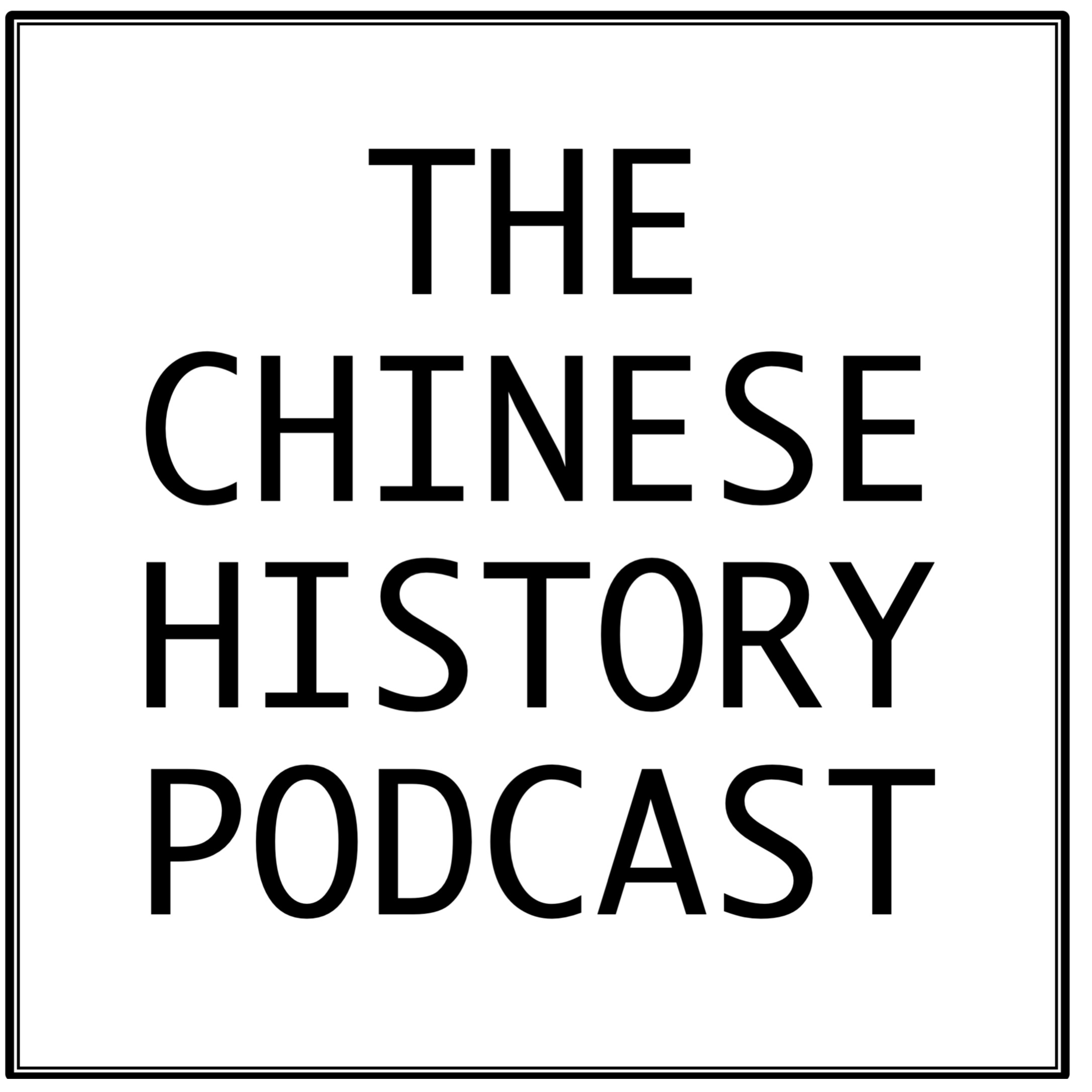Episodes
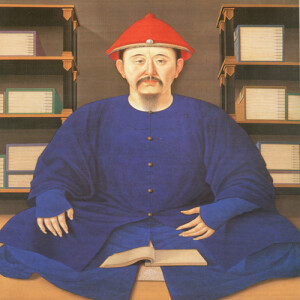
Friday Mar 01, 2024
Friday Mar 01, 2024
The Ming-Qing transition was an extremely chaotic time in Chinese history. Millions died of warfare, pestilence, or starvation, and millions more were displaced. Yet despite all these issues, this was also a period of cultural production, which has often been overlooked as people focus on the wars, famine, and climate change that pervaded this period. In this episode, I speak with Professor Lynn Struve about the literary pursuits of men and women and the overall intellectual landscape in the Late Ming and the Early Qing
Contributors
Lynn Struve

Lynn Struve is an emeritus professor of history and an emeritus professor of East Asian languages and cultures at Indiana University Bloomington. Her research interests include traditional Chinese history, 17th century political and intellectual history, East-West comparative thought, and Chinese reference and source materials. Over the course of her career, she has published widely, particularly on the period of the Ming-Qing transition, and has received numerous awards. Her representative works include Voices from the Ming-Qing Cataclysm: China in Tigers' Jaws, The Southern Ming, 1644-1662, The Ming-Qing Conflict: A Historiography and Source Guide, and, more recently, The Dreaming Mind and the End of the Ming World, which was recently awarded best overall book in Ming studies published between 2019 and 2022 by the Society for Ming Studies.
Yiming Ha

Yiming Ha is a Ph.D. candidate in the Department of History at the University of California, Los Angeles. His current research is on military mobilization and state-building in China between the thirteenth and seventeenth centuries, focusing on how military institutions changed over time, how the state responded to these changes, the disconnect between the center and localities, and the broader implications that the military had on the state. His project highlights in particular the role of the Mongol Yuan in introducing an alternative form of military mobilization that radically transformed the Chinese state. He is also interested in military history, nomadic history, comparative Eurasian state-building, and the history of maritime interactions in early modern East Asia. He received his BA from UCLA and his MPhil from the Hong Kong University of Science and Technology.
Credits
Episode no. 18
Release date: March 1, 2024
Recording location: Bloomington, IN/Los Angeles, CA
References compiled by Yiming Ha
Images
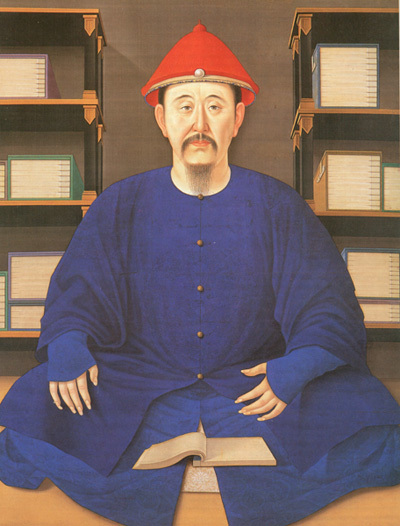
A portrait of the Kangxi emperor as a scholar, painted in 1699 when he was forty-five years of age. (Image Source)
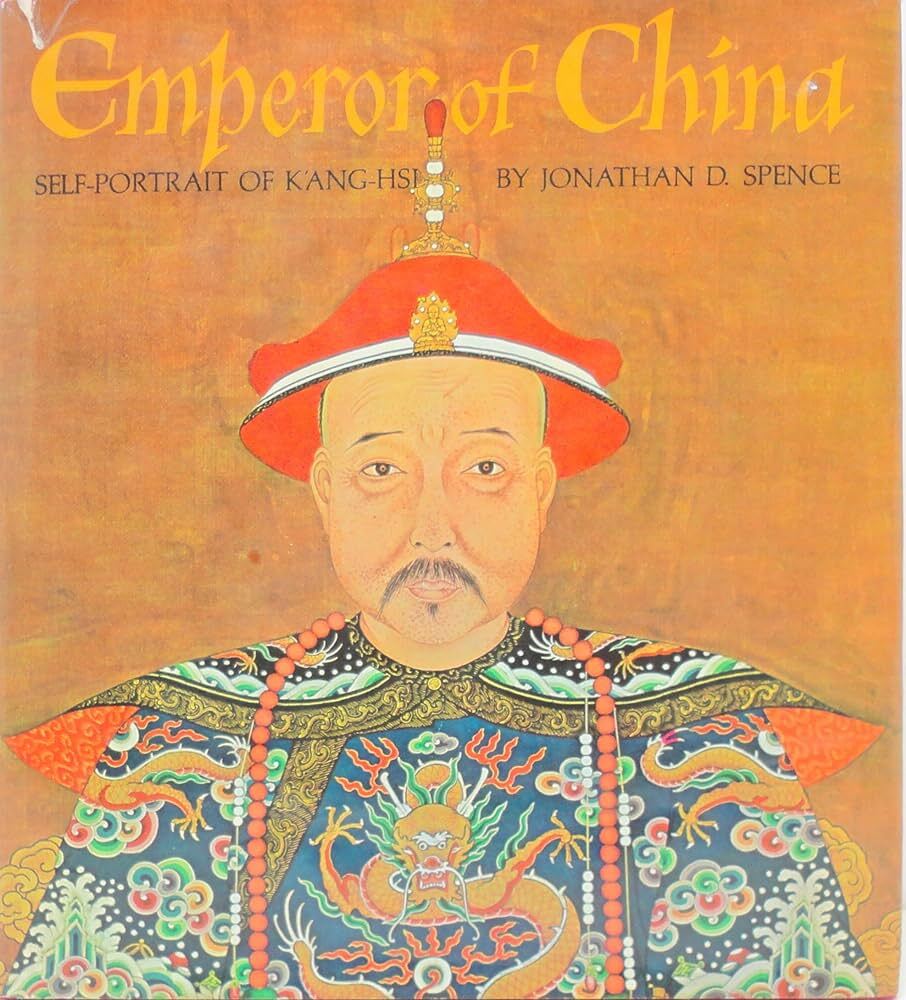
An alternative portrait of the Kangxi emperor that Jonathan Spence used for his book on the Kangxi emperor. This portrait shows the pockmarks on his face, a result of his childhood survival of smallpox which devastated the Manchu population. (Image Source)
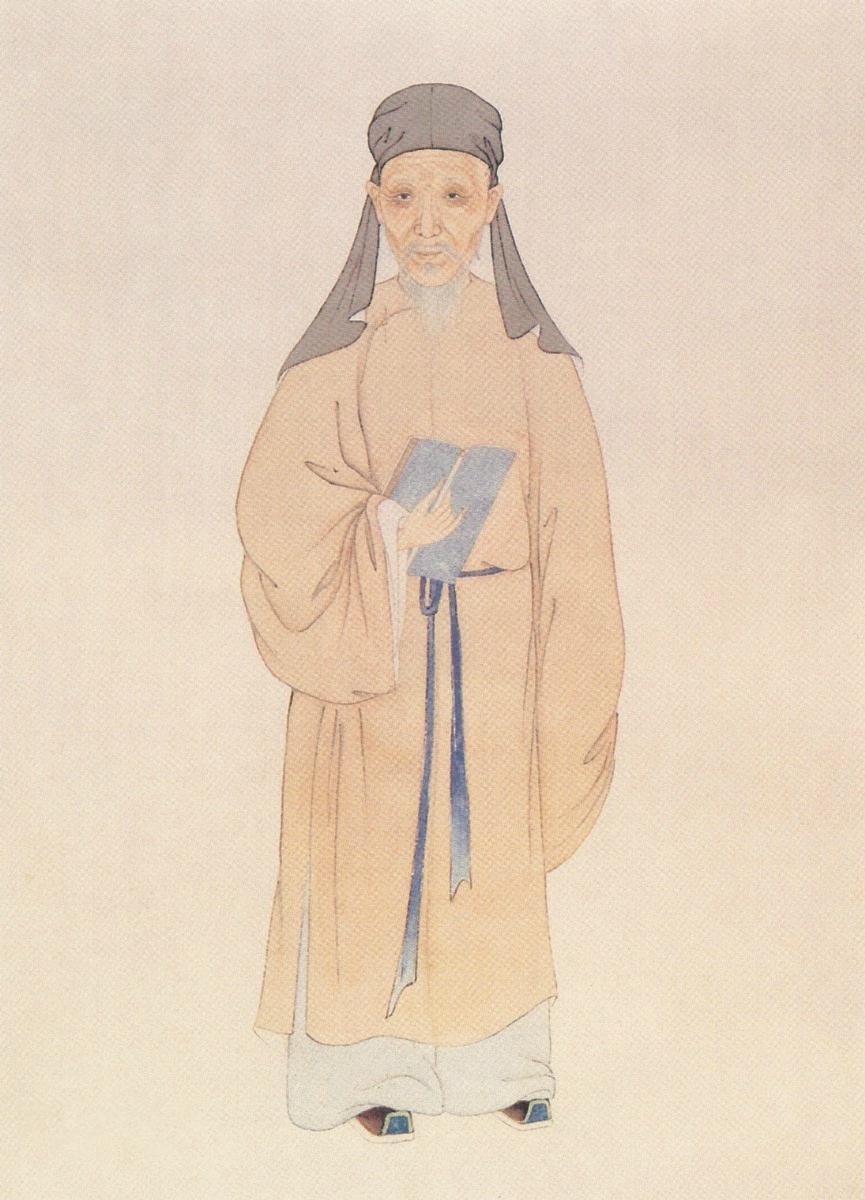
A portrait of Huang Zongxi (1610-1695), one of the great scholars of the Late Ming and Early Qing. Originally a prominent figure in the Ming loyalist movement, Huang retired from Ming loyalism but also refused to serve the Qing. Nonetheless, Huang made many contributions to scholarship by indirectly accommodating the Qing. (Image Source)
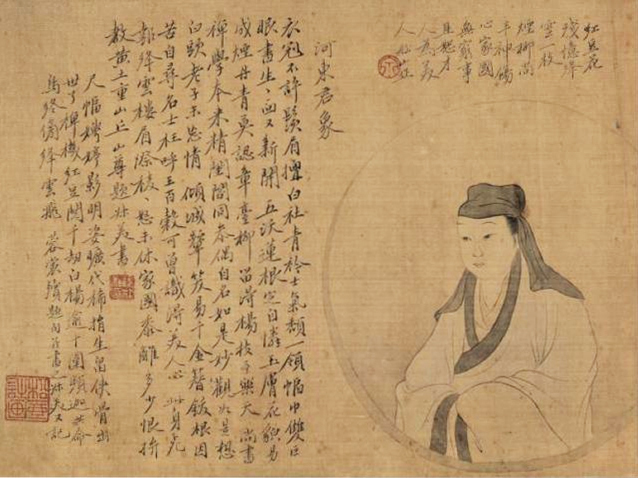
A late 18th/early 19th century portrait of Liu Rushi (1618-1664), one of the most famous courtesans of the 17th century and a prominent female scholar. (Image Source)
Select References
Brook, Timothy. The Price of Collapse: The Little Ice Age and the Fall of Ming China. Princeton: Princeton University Press, 2023.
Ko, Dorothy. Teachers of the Inner Chambers: Women and Culture in Seventeenth-century China. Stanford University Press, 1994.
Struve, Lynn. The Dreaming Mind and the End of the Ming World. Honolulu: University of Hawaii Press, 2019.
Widmer, Ellen. The Beauty and the Book: Women and Fiction in Nineteenth-century China. Cambridge, MA: Harvard University Asia Center, 2006.
Widmer, Ellen. The Inner Quarters and Beyond Women Writers from Ming Through Qing. Leiden: Brill, 2010.
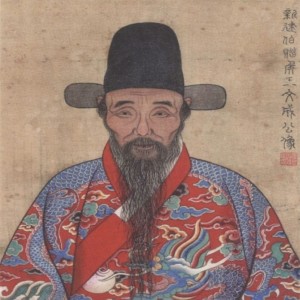
Sunday May 01, 2022
Sunday May 01, 2022
Wang Yangming 王陽明 (born Wang Shouren 王守仁, 1472-1529) is one of the most famous pre-modern Chinese intellectuals and the founder of the School of Mind (心學) of Neo-Confucianism, which was hugely influential in the later half of the Ming Dynasty. In addition to being philosopher, he was also an accomplished statesman, military leader, and calligrapher. In this episode, we speak with Professor George L. Israel, an expert on the study of Wang Yangming, who will introduce us to Wang's life and career, his thoughts and tenants, and his reception in the Ming and the Qing, as well as in neighboring Korea and Japan, and how Wang is viewed in China today.
We apologize for some audio issues with this recording.
Contributors
Professor George L. Israel

Professor George L. Israel is a Professor of History at Middle Georgia State University. His research is primarily on Ming intellectual history and Neo-Confucianism, with a particular focus on the famous Ming Neo-Confucian philosopher Wang Yangming, and he has published extensively about that subject in both English and Chinese.
Yiming Ha

Yiming Ha is a Ph.D. candidate in the Department of History at the University of California, Los Angeles. His current research is on military mobilization and state-building in China between the thirteenth and seventeenth centuries, focusing on how military institutions changed over time, how the state responded to these changes, the disconnect between the center and localities, and the broader implications that the military had on the state. His project highlights in particular the role of the Mongol Yuan in introducing an alternative form of military mobilization that radically transformed the Chinese state. He is also interested in military history, nomadic history, comparative Eurasian state-building, and the history of maritime interactions in early modern East Asia. He received his BA from UCLA and his MPhil from the Hong Kong University of Science and Technology.
Credits
Episode no. 11
Release date: May 1, 2022
Recording location: Los Angeles, CA/Macon, GA
Bibliography courtesy of Professor Israel
Images
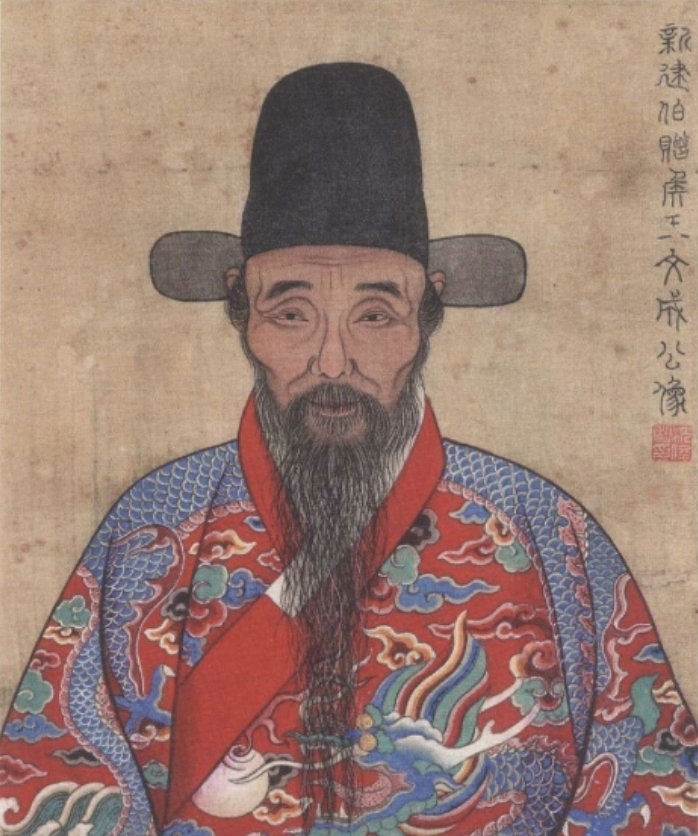
Cover Image: An official portrait of Wang Yangming (Image Source)
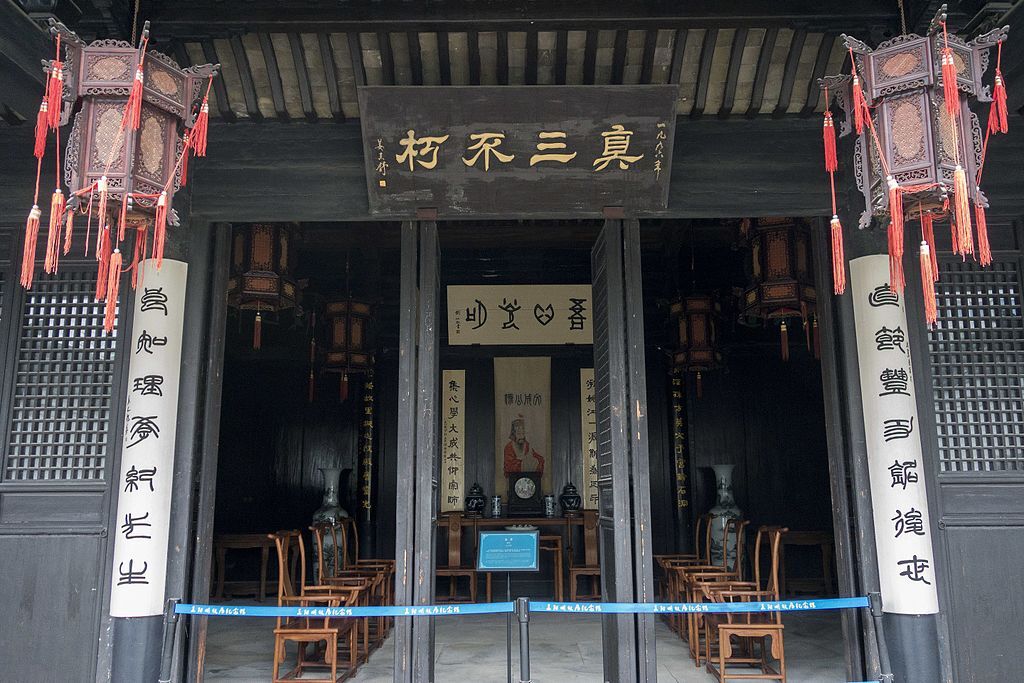
Grand Hall of Wang Yangming's former residence in Shaoxing (Image Source)
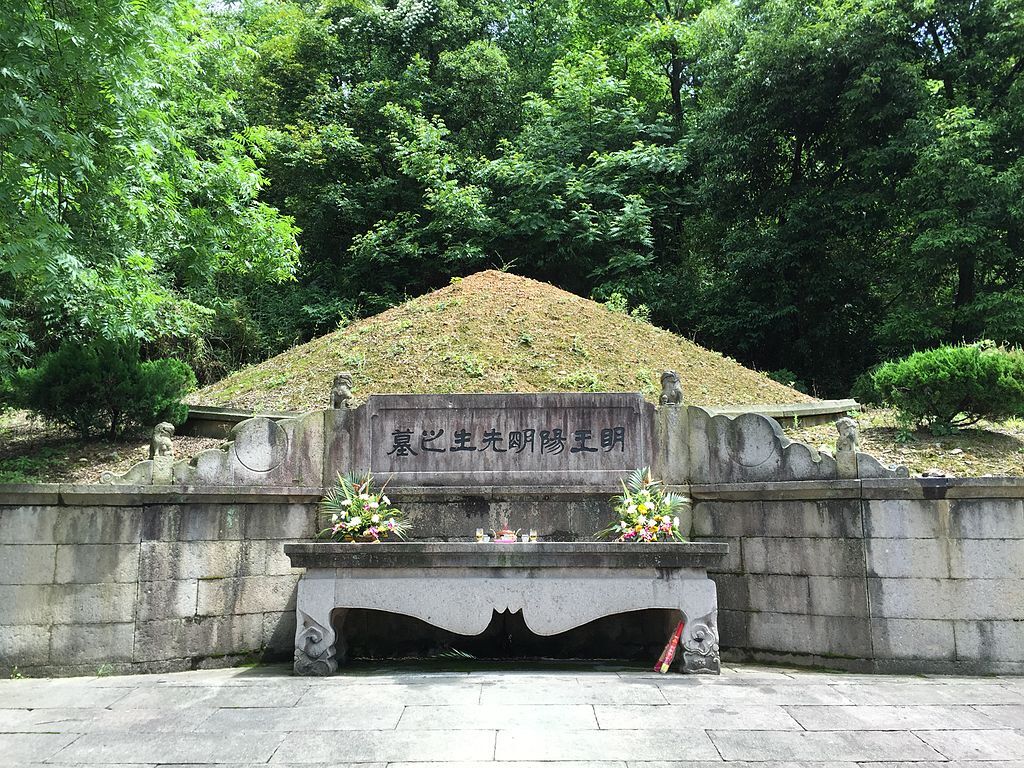
Wang Yangming's tomb at Shaoxing (Image Source)

A copy of Wang Yangming's calligraphy, currently held at Princeton University (Image Source)
References
Bresciani, Umberto. Reinventing Confucianism: The New Confucian Movement. Taipei: Taipei Ricci Institute, 2001.
Ching, Julia. The Records of Ming Scholars. Honolulu: University of Hawaii Press, 1987.
Chow, Kai-wing. The Rise of Confucian Ritualism in Late Imperial China: Ethics, Classics, and Lineage Discourse. Stanford: Stanford University Press, 1994.
Chung, So-yi. “Korean Yangming Learning.” In Dao Companion to Korean Confucian Philosophy, 253-284. Edited by Young-chan Ro. Springer, 2019.
Israel, George L. Studying Wang Yangming: History of a Sinological Field. Kindle Direct Publishing, 2022.
____. “The Renaissance of Wang Yangming Studies in the People’s Republic of China.” Philosophy East and West 66, no. 3 (Jul. 2019): 1001-1019.
Jiao Kun 焦堃. Yangming xinxue yu Mingdai neige zhengzhi 陽明心學與明代内閣政治 (The Yangming school of mind and the politics of the grand secretariat during the Ming dynasty). Beijing: Zhonghua Shuju, 2021.
Ogyū Shigehiro 荻生茂博. “The Construction of ‘Modern Yōmeigaku’ in Meiji Japan and Its Impact on China.” Translated, with an introduction, by Barry D. Steben. East Asian History no. 20 (December 2000): 83–120.
Qian Ming 錢明. Wang Yangming ji qi xuepai lun kao 王陽明及其學派論考 (Verification of theories of Wang Yangming and his school of thought). Beijing: Renmin Chubanshe, 2009.
Zhang Kunjiang 張崑將. Yangmingxue zai dongya: quanshi, jiaoliu yu xingdong 陽明學在東亞:詮釋, 交流與行動 (Yangming learning in East Asia: interpretation, exchange, and action). Taipei: Guoli Taiwan Daxue Chuban Zhongxin, 2011.
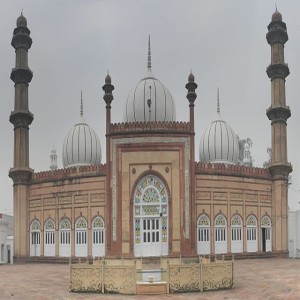
Sunday Mar 13, 2022
Sunday Mar 13, 2022
In the study of 19th and 20th century Chinese history, there is often focus on the intense Christian missionary activities happening in China. Yet at the same time, members of China's Hui (or Sino-Muslim) community were also beginning to reconnect with their co-religionists overseas. Armed with knowledge of Arabic, Persian, and Urdu and trained in Western orientalist discourses in new religious schools overseas, these Hui scholars began to "rediscover" aspects of Islam and in the process rewrite the history of Islam in China both for audiences within China and for a non-Chinese audience overseas. In this episode, we are joined by Professor Nile Green of UCLA to talk about how and why these exchanges took place and some of the implications of these exchanges.
Please also be sure to check out Professor Green's podcast "Akbar's Chamber" for monthly episodes on the history of Islam. Available on Apple Podcasts and all other major podcast platforms.
Contributors
Professor Nile Green

Professor Nile Green is a Professor of History and the Ibn Khaldun Endowed Chair in World History at UCLA. He works on the Islamic history of Asia, the Middle East, Africa and Europe, publishing numerous monographs and articles and editing seven books on a wide range of topics related to the history of Islam. His recent research interest is on the global history of Islam and Muslims, focusing on intellectual and technological interchange between Asia and Europe; Muslim global travel writings; the transnational genealogy of Afghan modernism; and the world history of 'Islamic' printing. He was a founding director of UCLA's Program on Central Asia and serves on many association and editorial boards. He is also the host of Akbar’s Chamber, a podcast that offers a non-political, non-sectarian and non-partisan space for exploring the past and present of Islam.
Yiming Ha

Yiming Ha is a Ph.D. candidate in the Department of History at the University of California, Los Angeles. His current research is on military mobilization and state-building in China between the thirteenth and seventeenth centuries, focusing on how military institutions changed over time, how the state responded to these changes, the disconnect between the center and localities, and the broader implications that the military had on the state. His project highlights in particular the role of the Mongol Yuan in introducing an alternative form of military mobilization that radically transformed the Chinese state. He is also interested in military history, nomadic history, comparative Eurasian state-building, and the history of maritime interactions in early modern East Asia. He received his BA from UCLA and his MPhil from the Hong Kong University of Science and Technology.
Credits
Episode no. 9
Release date: March 13, 2022
Recording location: Los Angeles, CA
Bibliography courtesy of Professor Green
Images
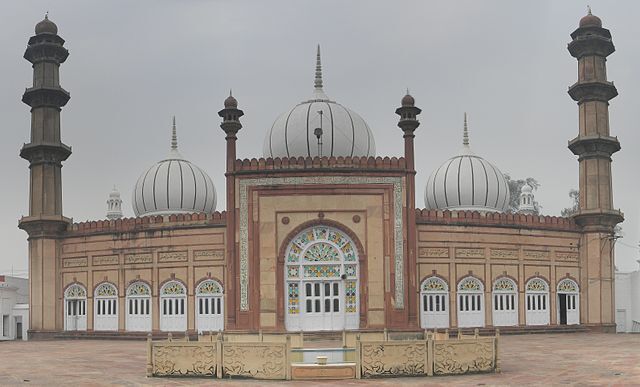
Cover Image: Masjid at the Aligarh Muslim University (formerly Muhammadan Anglo-Oriental College) in Aligarh, Uttar Pradesh, India. It was founded by Sir Thomas Arnold and was (and still is) a major center of Islamic learning (Image Source).
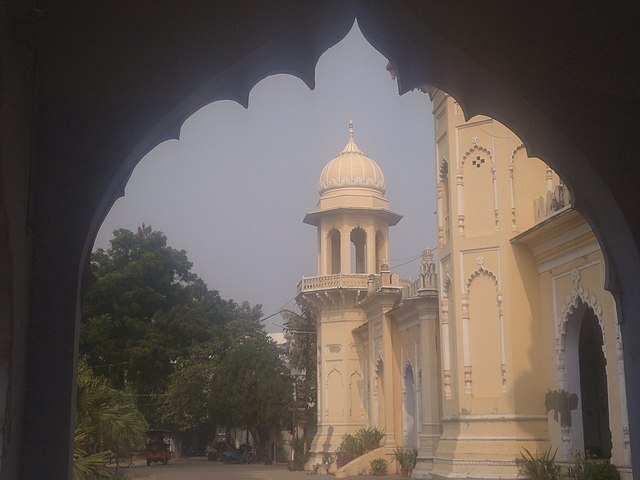
A view of the Darul Uloom Nadwatul Ulama in Lucknow, India, an Islamic seminary where Hai Weiliang* studied (Image Source).
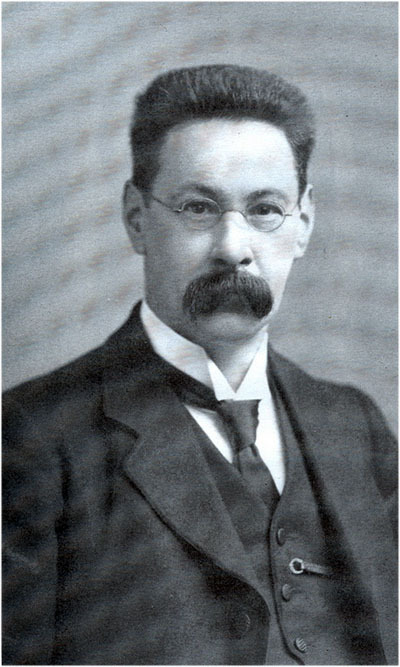
Sir Thomas Walker Arnold (1864-1930), a renowned British orientalist and Islamic scholar who wrote the famous The Preaching of Islam and The Encyclopedia of Islam. He founded the Muhammadan Anglo-Oriental College (now Aligarh Muslim University) and taught Syed Sulaiman Nadvi, who was the teacher of Hai Weiliang (Image Source).
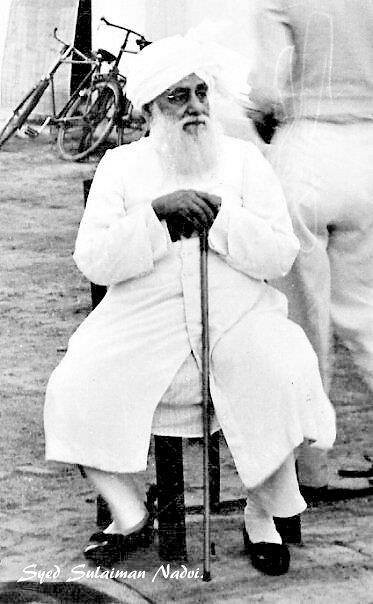
Syed Sulaiman Nadvi (1884-1953), the teacher and educational patron of Hai Weiliang (Image Source).
* Sadly, no pictures of Hai Weiliang can be found.
References
Green, Nile. How Asia Found Herself: A Story of Intercultural Understanding. New Haven: Yale University Press, forthcoming 2022.
Benite, Zvi Ben-Dor. The Dao of Muhammad: A Cultural History of Muslims in Late Imperial China. Cambridge, MA: Harvard University Asia Center, 2005.
Benite, Zvi Ben-Dor. “Taking ʿAbduh to China: Chinese-Egyptian Intellectual Contact in the Early Twentieth Century.” In James Gelvin and Nile Green (eds.), Global Muslims in the Age of Steam and Print, edited by James Gelvin and Nile Green, 249-267. Berkeley: University of California Press, 2014.
Chen, John. “‘Just Like Old Friends’: The Significance of Southeast Asia to Modern Chinese Islam.” SOJOURN: Journal of Social Issues in Southeast Asia 31, no. 3 (2016): 685–742.
Chen, John. “Islam’s Loneliest Cosmopolitan: Badr al-Din Hai Weiliang, the Lucknow-Cairo Connection, and the Circumscription of Islamic Transnationalism.” ReOrient: The Journal of Critical Muslim Studies 3/2 (2018): 121-139.
Chung, Tan & Ravni Thakur (eds). Across the Himalayan Gap: An Indian Quest for Understanding China. New Delhi: Indira Gandhi National Centre for the Arts, 1998.
Henning, Stefan. “God’s Translator: Qu’ran Translation and the Struggle over a Written National Language in 1930s China.” Modern China 41, no. 6 (2015): 631-655.
Jahn, Karl. China in der islamischen Geschichtsschreibung. Vienna: Österreichischen Akademie der Wissenschaften, 1971.
Lipman, Jonathan N. Familiar Strangers: A History of Muslims in Northwest China. Seattle: University of Washington Press, 1997.
Mao, Yufeng. “A Muslim Vision for the Chinese Nation: Chinese Pilgrimage Missions to Mecca during World War II.” The Journal of Asian Studies 70, no. 2 (2011): 373–395.
Murata, Sachiko. “The Muslim Appropriate of Confucian Thought in Eighteenth-Century China.” Comparative Islamic Studies 7, no. 1-2 (2012): 13–22.
O’Sullivan, Michael. “Vernacular Capitalism and Intellectual History in a Gujarati Account of China, 1860–68.” The Journal of Asian Studies 80, no. 2 (2021): 267–292.
Park, Hyunhee. Mapping the Chinese and Islamic Worlds: Cross-Cultural Exchange in Pre-Modern Asia. Cambridge: Cambridge University Press, 2012.
Petersen, Kristian. Interpreting Islam in China: Pilgrimage, Scripture, and Language in the Han Kitab. Oxford: Oxford University Press, 2017.
Sen, Tansen. India, China, and the World: A Connected History. Lanham: Rowman & Littlefield, 2017.
Thum, Rian. The Sacred Routes of Uyghur History. Cambridge MA: Harvard University Press, 2014.

